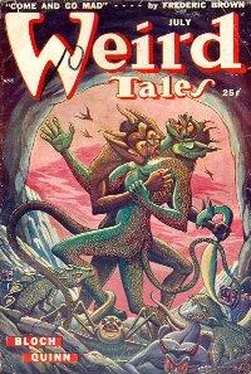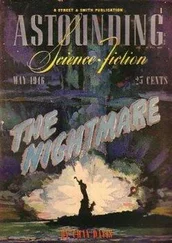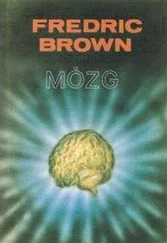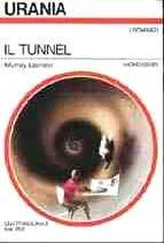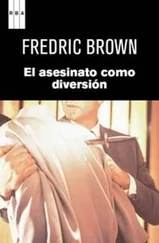Fredric Brown - Come and Go Mad
Здесь есть возможность читать онлайн «Fredric Brown - Come and Go Mad» весь текст электронной книги совершенно бесплатно (целиком полную версию без сокращений). В некоторых случаях можно слушать аудио, скачать через торрент в формате fb2 и присутствует краткое содержание. Год выпуска: 1949, Издательство: Weird Tales, Жанр: Фантастика и фэнтези, на английском языке. Описание произведения, (предисловие) а так же отзывы посетителей доступны на портале библиотеки ЛибКат.
- Название:Come and Go Mad
- Автор:
- Издательство:Weird Tales
- Жанр:
- Год:1949
- ISBN:нет данных
- Рейтинг книги:3 / 5. Голосов: 1
-
Избранное:Добавить в избранное
- Отзывы:
-
Ваша оценка:
- 60
- 1
- 2
- 3
- 4
- 5
Come and Go Mad: краткое содержание, описание и аннотация
Предлагаем к чтению аннотацию, описание, краткое содержание или предисловие (зависит от того, что написал сам автор книги «Come and Go Mad»). Если вы не нашли необходимую информацию о книге — напишите в комментариях, мы постараемся отыскать её.
Come and Go Mad — читать онлайн бесплатно полную книгу (весь текст) целиком
Ниже представлен текст книги, разбитый по страницам. Система сохранения места последней прочитанной страницы, позволяет с удобством читать онлайн бесплатно книгу «Come and Go Mad», без необходимости каждый раз заново искать на чём Вы остановились. Поставьте закладку, и сможете в любой момент перейти на страницу, на которой закончили чтение.
Интервал:
Закладка:
He turned it gently and the door opened inward. Light blinded him. The voice said, “Wait,” and he stood immobile. He could hear sound—the rustle of paper, the turn of a page—outside the door, in the lighted corridor.
Then from across the hall came the sound of a shrill scream. A chair scraped and feet hit the floor of the corridor, walking away toward the sound of the scream. A door opened and closed.
The voice said, “Come,” and he pulled the door open the rest of the way and went outside, past the desk and the empty chair that had been just outside the door of the ward.
Another door, another corridor. The voice said, “Wait,” the voice said, “Come”; this time a guard slept. He tip-toed past. Down steps.
He thought the question, “Where am I going?”
“Mad,” said the voice.
“But you said I wasn’t—” He’d spoken aloud and the sound startled him almost more than had the answer to his last question. And in the silence that followed the words he’d spoken there came—from the bottom of the stairs and around the corner—the sound of a buzzing switchboard, and someone said, “Yes?… Okay, Doctor, I’ll be right up.” Footsteps and the closing of an elevator door.
He went down the remaining stairs and around the corner and he was in the front main hall. There was an empty desk with a switchboard beside it. He walked past it and to the front door. It was bolted and he threw the heavy bolt.
He went outside, into the night.
He walked quietly across cement, across gravel; then his shoes were on grass and he didn’t have to tiptoe any more. It was as dark now as the inside of an elephant; he felt the presence of trees nearby and leaves brushed his face occasionally, but he walked rapidly, confidently and his hand went forward just in time to touch a brick wall.
He reached up and he could touch the top of it; he pulled himself up and over it. There was broken glass on the flat top of the wall; he cut his clothes and his flesh badly, but he felt no pain, only the wetness of blood and the stickiness of blood.
He walked along a lighted road, he walked along dark and empty streets, he walked down a darker alley. He opened the back gate of a yard and walked to the back door of a house. He opened the door and went in. There was a lighted room at the front of the house; he could see the rectangle of light at the end of a corridor. He went along the corridor and into the lighted room.
Someone who had been seated at a desk stood up. Someone, a man, whose face he knew but whom he could not—
“Yes,” said the man, smiling, “you know me, but you do not know me. Your mind is under partial control and your ability to recognize me is blocked out. Other than that and your analgesia—you are covered with blood from the glass on the wall, but you don’t feel any pain—your mind is normal and you are sane.”
“What’s it all about?” he asked. “Why was I brought here?,”
“Because you are sane. I’m sorry about that, because you can’t be. It is not so much that you retained memory of your previous life, after you’d been moved. That happens. It is that you somehow know something of what you shouldn’t—something of The Brightly Shining, and of the Game between the red and the black. For that reason—”
“For that reason, what?” he asked.
The man he knew and did not know smiled gently. “For that reason you must know the rest, so that you will know nothing at all. For everything will add to nothing. The truth will drive you mad.”
“That I do not believe.”
“Of course you don’t. If the truth were conceivable to you, it would not drive you mad. But you cannot remotely conceive the truth.”
A powerful anger surged up within him. He stared at the familiar face that he knew and did not know, and he stared down at himself; at the torn and bloody gray uniform, at his torn and bloody hands. The hands hooked like claws with the desire to kill—someone, the someone, whoever it was, who stood before him.
He asked, “What arc you?”
“I am an instrument of The Brightly Shining.”
“The same which led me here, or another?”
“One is all, all is one. Within the whole and its parts, there is no difference. One instrument is another and the red is the black and the black is the white and there is no difference. The Brightly Shining is the soul of Earth. I use soul as the nearest word in your vocabulary.”
Hatred was almost a bright light. It was almost something that he could lean into, lean his weight against.
He asked, “What is The Brightly Shining?” He made the words a curse in his mouth.
“Knowing will make you mad. You want to know?”
“Yes.” He made a curse out of that simple, sibilant syllable.
The lights were dimming. Or was it his eyes? The room was becoming dimmer, and at the same time receding. It was becoming a tiny cube of dim light, seen from afar and outside, from somewhere in the distant dark, ever receding, turning into a pinpoint of light, and within that point of light ever the hated. Thing, the man—or was it a man?—standing beside the desk.
Into darkness, into space, up and apart from the earth—a dim sphere in the night, a receding sphere outlined against the spangled blackness of eternal space, occulting the stars, a disk of black.
It stopped receding, and time stopped. It was as though the clock of the universe stood still. Beside him, out of the void, spoke the voice of the instrument of The Shining One.
“Behold,” it said. “The Being of Earth.”
He beheld. Not as though an outward change was occurring, but an inward one, as though his senses were being changed to enable him to perceive something hitherto unseeable.
The ball that was Earth began to glow. Brightly to shine.
“You see the intelligence that rules Earth,” said the voice. “The sum of the black and the white and the red, that are one, divided only as the lobes of a brain are divided, the trinity that is one.”
The glowing ball and the stars behind it faded, and the darkness became deeper darkness and then there was dim light, growing brighter, and he was back in the room with the man standing at the desk.
“You saw,” said the man whom he hated. “But you do not understand. You ask, what you have seen, what is The Brightly Shining? It is a group intelligence, the true intelligence of Earth, one intelligence among three in the Solar system, one among many in the universe.
“What, then, is man? Men are pawns, in games of—to you—unbelievable complexity, between the red and the black, the white and the black, for amusement. Played by one part of an organism against another part, to while away an instant of eternity. There are vaster games, played between galaxies. Not with man.
“Man is a parasite peculiar to Earth, which tolerates his presence for a little while. He exists nowhere else in the cosmos, and he does not exist here for long. A little while, a few chessboard wars, which he thinks he fights himself—You begin to understand.”
The man at the desk smiled.
“You want to know of yourself. Nothing is less important. A move was made, before Lodi. The opportunity was there for a move of the red; a stronger, more ruthless personality was needed; it was a turning point in history—which means in the game. Do you understand now? A pinch-hitter was put in to become Emperor.”
He managed two words. “And then?”
“The Brightly Shining does not kill. You had to be put somewhere, some time. Long later a man named George Vine was killed in an accident; his body was still usable. George Vine had not been insane, but he had had a Napoleonic complex. The transference was amusing.”
“No doubt.” Again it was impossible to reach the man at the desk. The hatred itself was a wall between them. “Then George Vine is dead?”
Читать дальшеИнтервал:
Закладка:
Похожие книги на «Come and Go Mad»
Представляем Вашему вниманию похожие книги на «Come and Go Mad» списком для выбора. Мы отобрали схожую по названию и смыслу литературу в надежде предоставить читателям больше вариантов отыскать новые, интересные, ещё непрочитанные произведения.
Обсуждение, отзывы о книге «Come and Go Mad» и просто собственные мнения читателей. Оставьте ваши комментарии, напишите, что Вы думаете о произведении, его смысле или главных героях. Укажите что конкретно понравилось, а что нет, и почему Вы так считаете.
